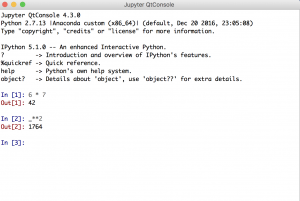One of my guilty little pleasures is my SiriusXM subscription in my car. The model of car that I bought had the deluxe stereo package and it came with a 3 month trial subscription. At the time I was commuting an hour and a half to work every day. I was sold on a subscription before a week had gone by.
That was almost five years ago and every year I try to talk myself out of renewing but of the subscriptions that I have I probably use this one more than most of the others. I don’t have a long commute any more but I listen to Sirius every time I go anywhere in my car.
This week Sirius started a new channel that has made me an even bigger fan of the service. You may have seen the ads for it on television. It is called the Beatles channel and it plays songs from the entire Beatles catalog including those recorded by the individual members after the breakup. It also plays music by musicians that influenced the Beatles like Elvis Presley and Chuck Berry for instance. It plays covers of Beatle tunes by various artists, many of which I was unaware. It plays short documentary clips about various details of the Fab Four. I also caught a little bit of a show where Little Stephen of the E-Street Band was playing his favorite song of each Beatle. I suspect we’ll have more different content as time goes by.
I was about to go through the process of deciding whether to keep my subscription for another year. This channel has just tipped the decision for this year at least.
So, why am I so excited about a Beatles channel anyway. Several reasons come to mind. Foremost among them is the fact that I grew up listening to the Beatles. The first LP that I ever owned was bought with Green stamps and was Beatles 65. The first song that my garage band learned was Eleanor Rigby. You begin to see a pattern developing here.
The Beatles weren’t the only band I listened to but as the years went by and my musical taste broadened, the Beatles remained in the core of my musical pantheon. I listened to the Rolling Stones, Simon & Garfunkel, Ten Years After, and Jefferson Airplane/Starship. As my musical taste matured I found myself listening to Santana, Joni Mitchell, Crosby, Stills, Nash, & Young, and Ricky Lee Jones.
Beatles song have a particular quality to them. They infused our culture so completely and for so long that they have become markers that bring to mind events in your life when a particular song was playing. For example, I associate Rocky Raccoon with the Saloon at Guntown Mountain the first night that I worked there. The rest of the cast was feeling me out and the fact that I knew Rocky Raccoon seemed to cinch their opinion of me as a competent guitarist.
I remember how upset I was that they were breaking up. It was a slow motion affair. The decision had been made and put in motion before the sales of Let it Be and The White album had even begun to peak. We didn’t have any idea of how prolific the individual members of the band would be after the break up.
I said there were a lot of reasons. I’ve really only given two are three. There are more but I’ll give it some thought and write about them another time. By the way, I wrote this blog post listening to… The Beatles, of course.
Sweet dreams, don’t forget to tell the ones you love that you love them, and most important of all, be kind.

